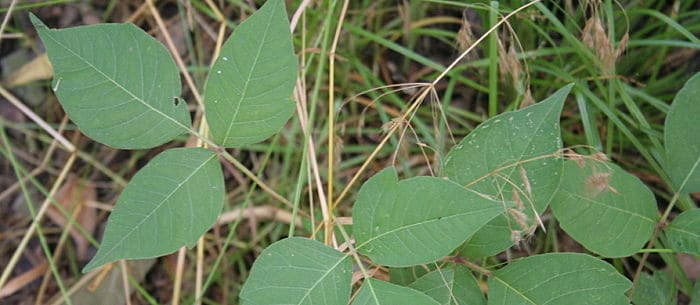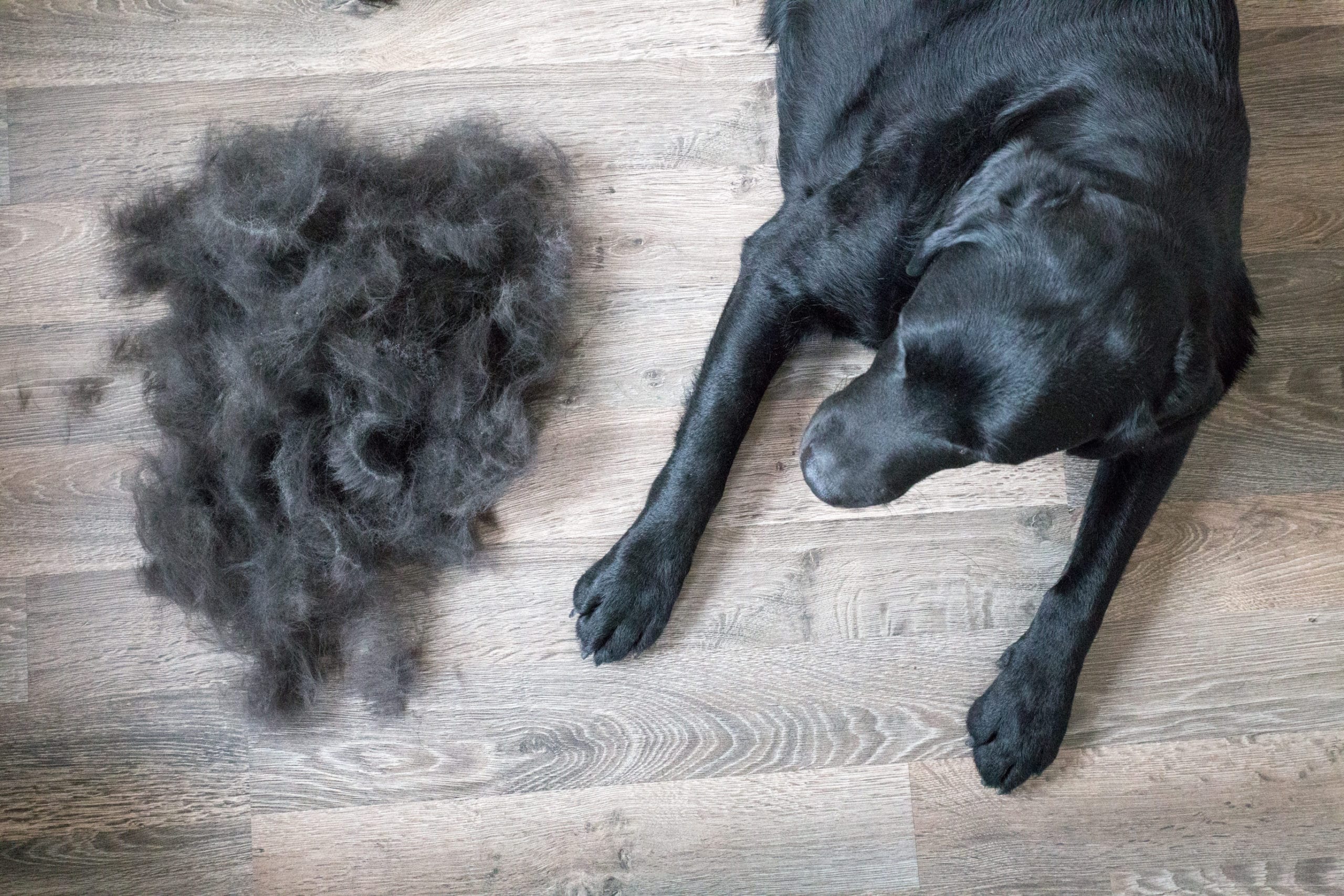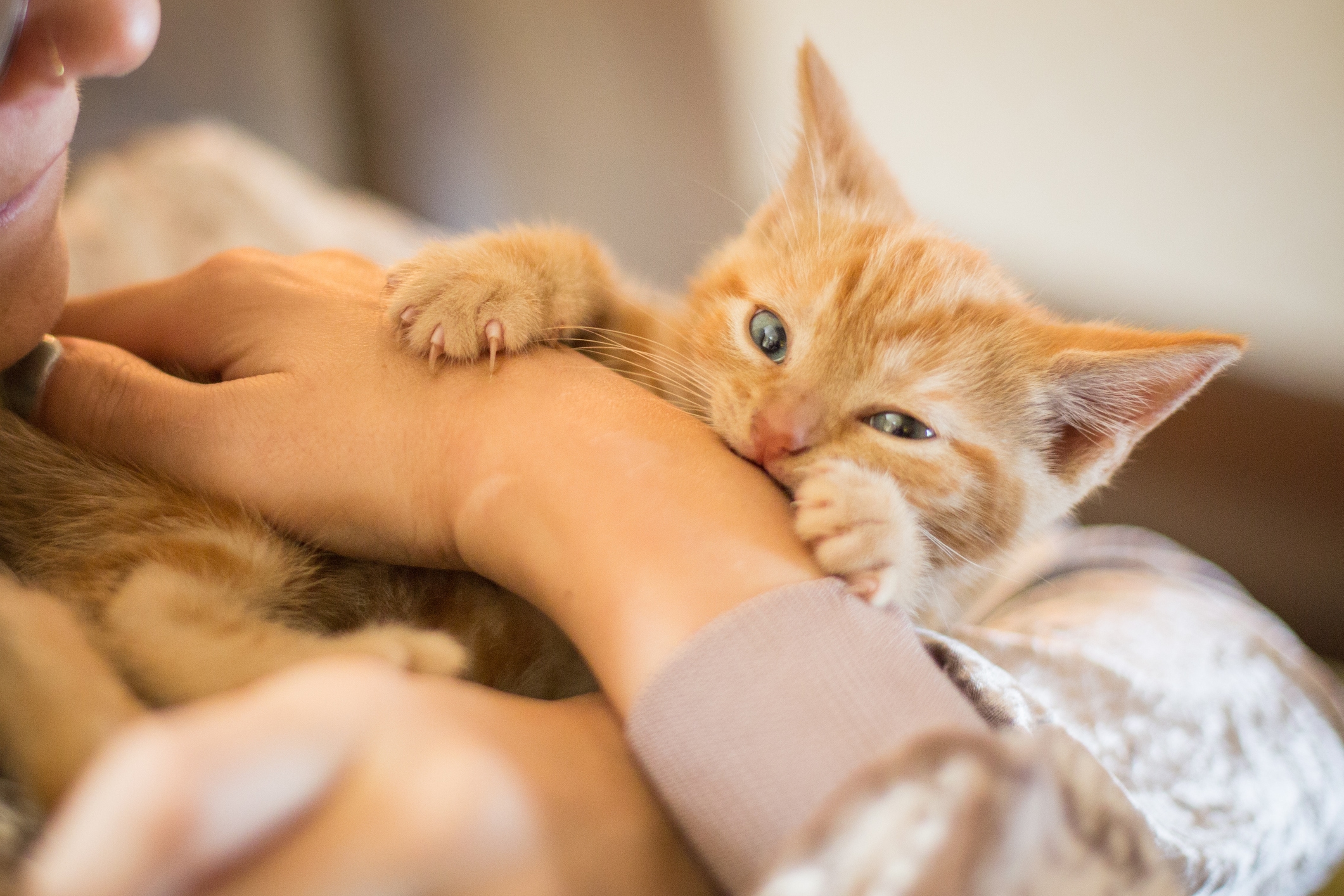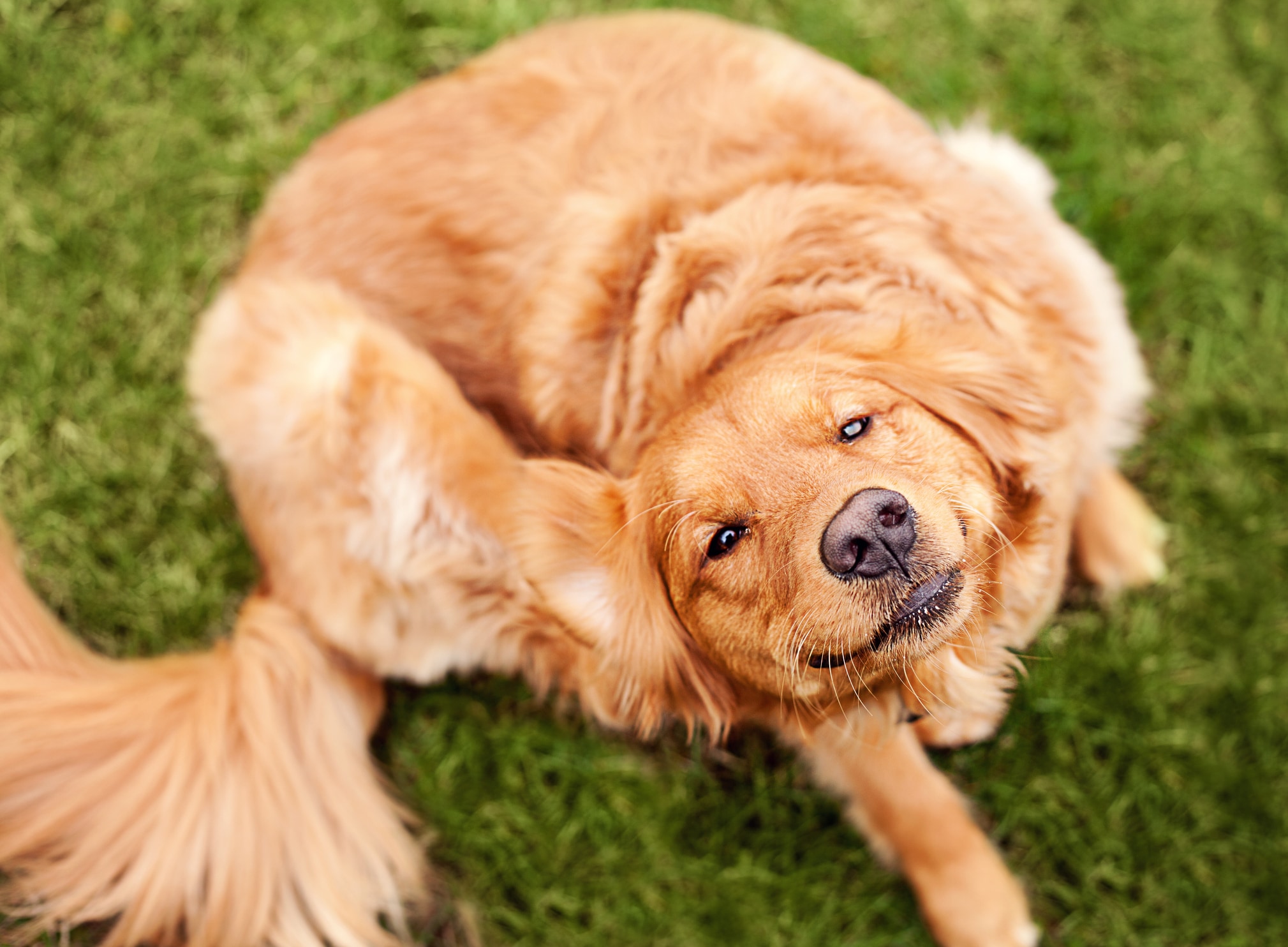Do you love to go hiking with your canine companion? While this can be a fun activity for you to do together, or for your dog to do with a dog walker if you’re more of the indoor type, there are many potential hazards that you need to be aware of when hitting the trails. For instance, poison ivy often lurks in these areas. But, can dogs get poison ivy? Here’s everything you need to know!
Where Does Poison Ivy Grow and What Does It Look Like?
Poison ivy can grow anywhere, from wooded areas to backyards, says Dr. Mary Beth Leininger, the chief veterinary services officer and assistant vice president of veterinary relations at Hartville Pet Insurance Group, the providers of ASPCA pet insurance.
The plants grow as a vine or a small, bushy shrub, and each stem features three smaller leaflets. However, poison ivy may look slightly different throughout the year. The American Academy of Dermatology reports that poison ivy flaunts yellow-green flowers during the springtime and may grow small green berries that turn off-white in the fall.
Can Dogs Get Poison Ivy?
According to Dr. Leininger, “a reaction to poison ivy is caused by exposure to urushiol, an allergenic oil found in this plant, as well as poison oak and poison sumac.” Although it’s not common, dogs can react to poison ivy, says Dr. Hayley R. Adams, a veterinarian and board certified diplomate in the American College of Veterinary Microbiology and the American College of Veterinary Preventive Medicine who currently serves as the director of operations of the Silent Heroes Foundation.
If your dog does get poison ivy and begins to chew on his irritated skin, your vet may prescribe topical, oral or injectable steroid medications and antibiotics, as he may be concerned that your pet will develop a secondary bacterial skin infection, adds Dr. Adams.
Are Some Breeds More Prone to Having These Allergic Reactions Than Others?
“Although there may be breed-specific predilections for an allergic response to poison ivy, it is more likely related to the dog’s fur coverage (more exposed skin is more likely to come in contact with the plant and react), height (shorter stature dogs may brush up against the plants, especially on their bellies which have little to no fur) and activities (spending time hiking or in heavy wooded areas),” says Dr. Adams.
If Your Dog Has an Itchy Rash, Is Poison Ivy the Most Likely Cause?
During the spring, summer and fall, it’s not uncommon for dogs to get itchy rashes. In fact, “if your dog has symptoms like redness, swelling or bumps on the skin, it’s unlikely that poison ivy is the culprit,” says Dr. Leininger. “However, there are a number of other causes of skin irritation in dogs, such as fleas, dry skin or allergic reactions.
It’s important to talk to your veterinarian about any skin issues you notice in your dog, so the root cause and proper treatment can be determined.” According to Dr. Leininger, veterinarians often prescribe topical ointments, anti-inflammatory medications or antihistamines for pets with skin irritations.
How Does Your Dog Feel After Being Exposed to Poison Ivy?
A dog with a poison ivy rash is uncomfortable, says Dr. Scott Perry, an associate veterinarian at Arlington Animal Hospital in Riverside, California. As the plant’s oils sink into your dog’s skin, red bumps that resemble pimples — known as papules — will emerge, causing your pet to itch and his skin to redden, much like the reaction humans experience.
“As the condition becomes more chronic, the papules may start to blister and ooze a clear fluid,” says Dr. Perry. “When this occurs, the skin is more susceptible to bacterial infections, which results in more histamine being released, thus perpetuating the scratch-itch cycle and inflammation.”
According to Dr. Perry, your dog’s pain level is determined by the amount of inflammation and whether or not he receives treatment. If you’re concerned about your pet, Dr. Perry stresses that you should watch for signs of a fever, such as lethargy, depression and a loss of appetite. For dogs, fevers constitute a temperature of 103 degrees Fahrenheit, he says. If you think that your dog has a fever, you should take him to the vet right away.
What Should You Do If Your Dog Has Touched Poison Ivy?
If you think that your dog has touched poison ivy, you should give him a bath as soon as possible, says Dr. Leininger. And make sure to use rubber gloves when you do! The oil in poison ivy “can get on a dog’s fur and be passed along to people who can break out in an itchy and sometimes painful rash,” explains Dr. Leininger. So you must be extra careful when handling your pet if he has been exposed to the plant. After you dry your dog off, you should wash the towels immediately to avoid contact with lingering oils, notes Dr. Leininger.
How Can Your Prevent Your Dog From Being Exposed to Poison Ivy?
According to Dr. Adams, a veterinarian dermatologist or veterinarian who specializes in skin conditions can test your dog for specific allergies. This is a good option if you spend a lot of time outdoors, in areas where poison ivy grows, or if you know that your pet has particularly sensitive skin.
However, there are no vaccines or medications available that can prevent your dog from getting poison ivy. According to Dr. Perry, “the only sure way of reducing your pet’s risk of reaction to poison ivy is to limit his exposure.” If you are going out into problematic areas, he recommends that you use a T-shirt or other fabric to cover exposed areas of your pet’s skin and reduce his contact with the plant’s poisonous resin.
You may also try to limit your dog’s outdoor time to cement sidewalks and manicured grass lawns or surfaces without green vegetation, such as sandy beaches or pebble-landscaped yards and parks.
For more on pet safety, check out these 12 Toxic Plants for Dogs.
Angela writes about parenting, pet care and being a home-based writer. She and her husband live in Iowa with their two spoiled dogs. You can find her twitter.
*This article is for general informational purposes only. It is not intended nor implied to be providing medical advice and is not a substitute for such advice. The reader should always consult a health care provider concerning any medical condition or treatment plan. Neither Care.com nor the author assumes any responsibility or liability with respect to use of any information contained herein.








